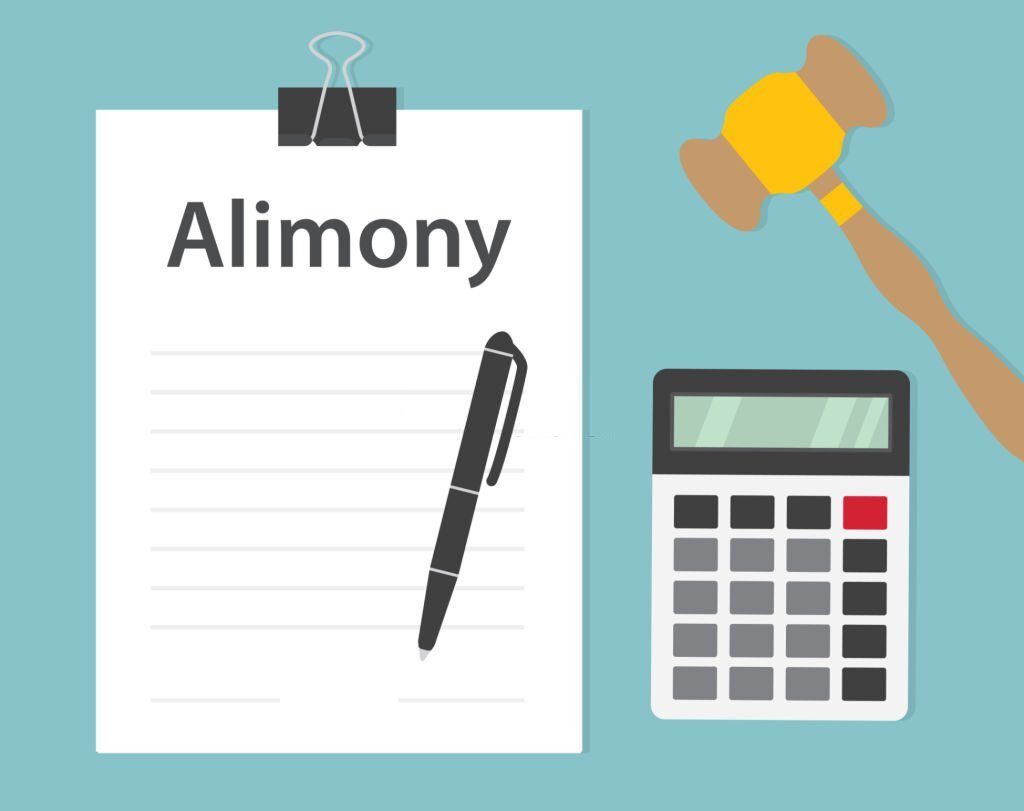
The alimony laws governing spousal support in Pennsylvania is different from what is obtainable in other states. Read further to grasp the peculiarity of the PA alimony law.
Also referred to as “spousal support” or “spousal maintenance” in Keystone State, alimony is the series of payments made by one spouse (the payor spouse) to another (the supported or payee spouse) after the divorce.
Before the alimony payments commence, there has to be a written order or agreement which requires the payor to support the payee with a stipulated amount of money.
This agreement eliminates any disputes in the future about why the payment was made or when it’s not made.
All 50 states in America are alimony states, meaning states that have enacted laws permitting a spouse who cannot work full time or with a lower income to request payments from the other spouse to support themselves after a divorce.
Type of Alimony Laws Practiced in PA

Types of alimony in Pennsylvania
In Pennsylvania, alimony is unique in that the law allows judges to award spousal support and alimony pendente lite before the divorce is finalized. After a marriage separates, spousal support is accessible to the dependent spouse and stops when one spouse files for divorce. (13 Pa. Cons. Stat. Ann. § 3702).
Alimony is defined variably in Pennsylvania based on the stage of the divorce. Aside from alimony, there’s also:
Pre-Divorce Support in Pennsylvania
Spousal Support
This is short-term financial support given to a spouse after a divorce is filed but before the divorce is finalized. Spousal support shall be calculated by the courts using the Pennsylvania Guidelines for Spousal Support. If the court awards spousal support based on the Guidelines, a spouse may request a variation by demonstrating a greater financial need than the Guidelines allow.
Alimony Pendente Lite
Alimony Pendente Lite (APL), like spousal support, is a transitory agreement. It is granted in this circumstance while a divorce is pending. This can help a spouse keep their livelihood while the divorce is being finalized, as well as afford the divorce costs. There are various time constraints on how long APL can last, and in other situations, a spouse may not even be eligible.
If APL is awarded by the judge under the same Rules as spousal support, a spouse may request a variance from the Guidelines by demonstrating a larger economic need than the Guidelines allow.
How to Calculate Pre-Divorce Support in PA
When determining the amount of pre-divorce support, the court must first assess whether one spouse is financially dependent on the other and if so, the judge must apply the state’s mandated calculator (guidelines) to calculate the amount of support required. (13 Pa. Cons. Stat. Ann. § 4322 (a).)
Both spouses’ net incomes will be entered into the court’s spousal support calculator, which will compute a guideline payment. If the final figure does not suit the dependent spouse’s financial needs, the dependent spouse might ask the judge to alter the calculation. (231 Pa. Code Rule 1910.16-1).
Post-Divorce Support (Alimony) in Pennsylvania
Alimony is how Pennsylvania courts refer to it. Alimony awards are reserved for circumstances in which one spouse is economically dependent on the other and requires financial assistance to meet basic necessities following the divorce. (13 Pa. Cons. Stat. Ann. § 3701 (c))
The courts anticipate both spouses to be financially self-sufficient following the divorce, but recognize that some spouses may require additional time to gain job skills or obtain education before finding work that will lead to financial autonomy. The goal of short-term support, according to certain courts, is for the supporting spouse to offer financial assistance to the supported spouse while the supported spouse enhances his or her earning capacity and job prospects.
Any spouse can demand post-divorce alimony, but the court will only proceed if the requesting spouse can demonstrate that it is essential. (13 Pa. Cons. Stat. Ann. § 3701 (a))
How to Calculate Post-Divorce Support in Pennsylvania
Unlike alimony pendente lite and spousal support, post-divorce alimony is not calculated using a formula. Instead, when determining the type, duration, and amount of alimony, judges must consider the following factors:
- the income potential of each spouse
- the age of each spouse, as well as their physical, mental, and emotional health
- sources of income for each spouse
- each spouse’s expectations and inheritances
- the longevity of the relationship
- whether one spouse assisted in the education, training, or enhanced earning potential of the other
- whether a custodial parent’s earning ability is reduced the marital level of living
- each spouse’s education and the time required for the supported spouse to obtain training or education, as well as both spouses’ assets and liabilities
- the assets that both partners brought to the marriage
- contribution of one or both spouses as a housewife during the marriage
- both spouses’ requirements
- marital infidelity (during the marriage and before separation)
- the alimony award’s tax implications
- whether the supported spouse lacks sufficient assets to meet his or her financial obligations, and
- whether the supported spouse is unable to support himself or herself through work. (13 Pa. Cons. Stat. Ann. § 3701 (b))
When it comes to determining the ultimate terms of an alimony order, judges have a lot of freedom. You and your spouse can negotiate the parameters of your support order on your own and then submit your written agreement to the court if you want to keep control of it. As long as your alimony agreement is fair to both spouses, judges will usually uphold it.
Who Pays Alimony in Pennsylvania?
In Pennsylvania alimony law, the spouse that makes most of the money will share that income with the other spouse. The idea behind who pays for alimony is to considerably level up the living standard of the dependent spouse to what it was while the marriage was on.
Regarding the sex that pays, alimony in Keystone State is gender-neutral, meaning either spouse can request support from the other. As long as the alimony can be provided to the requesting spouse, then it will most likely be granted.
So a husband can receive alimony from a wife in Pennsylvania if the above conditions are met.
How Long Does Spousal Support Last in PA?

The judge will decide how long the alimony payment should last in Pennsylvania
The duration to pay alimony in Pennsylvania can differ depending on the individual judge and circumstances. However, you should expect to pay spousal support for a duration of 80-70% of the length of the marriage lasted. So assuming you were married for 10 years, the spousal support duration will most likely be between 6 to 7 years.
As provided by the alimony laws of PA, rehabilitative and permanent support stops if either spouse dies or the supported spouse remarries.
How to Collect Spousal Support Arrears in Pennsylvania
When it comes to collecting spousal support in Pennsylvania, you have a few choices if your ex-spouse has failed to make alimony payments as ordered by the court. Debts for spousal support are frequently given priority among debtors under US law.
How Alimony is Calculated in PA

How Alimony is Calculated in AN
The amount to be paid as spousal support in Pennsylvania is calculated after considering the above-stated factors. Whichever option is adopted it is reflected in the Alimony Calculator
But to be explicit about how to calculate spousal support in PA, you may need to consult your spousal support attorney.
>>> Pennsylvania Spousal Support Calculator
Importance of Using a Skilled Pennsylvania Spousal Support Attorney
If you’re getting a divorce in Pennsylvania and need to negotiate or re-negotiate spousal support, you’ve definitely got a lot of questions and want to seek competent legal guidance. Though state Supreme Courts have supported lifetime spousal support, your circumstances may or may not fulfill the requirements. PA courts may judge your case differently based on the merits of you and your previous spouse. There are so many variables to consider.
If you want to get spousal support for the rest of your life or if you want to fight against it in Pennsylvania, an expert divorce lawyer can help. Depending on the objective and the desire of the adversary attorney to bargain in good faith, you’ll need attorneys that are both empathetic and strong.
For the convenience of our members, we have an up-to-date directory of PA divorce and spousal support attorneys who can help with a variety of issues. For legal advice and representation on spousal support that is powerful and well-informed.
Click Here to Get our Free Pennsylvania Alimony recommendation.
FAQ About Pennsylvania Alimony Laws
Here are Frequently Asked Questions about spousal support laws in PA:
Can a Husband get Alimony in PA?
Yes. In Pennsylvania, alimony payment is gender-neutral, meaning the sex that pays or receives is not the main determinant, but other factors as stated above. For details click here.
Who Qualifies for Alimony in Pennsylvania?
Just as either spouse can pay or receive, the party that qualifies to receive spousal support is the dependent party while the marriage lasted. This means that in PA, the spouse that had lesser or no income when the marriage was on is also the one qualified to receive alimony. Click here for details
How Long do you have to be Married to get Alimony in PA?
To understand how long alimony lasts in Pennsylvania, you have to take into consideration how long the marriage lasted.
However, bear in mind that there is no limit to the duration you can pay or receive alimony for marriages that lasted 10-20 years or more. Any marriage that lasted below 20 years will not pay nor receive alimony that exceeds 50% of the duration of the marriage.
Is Alimony Tax Deductible in Pennsylvania?
Following the passage of the Tax Cuts and Jobs Act, which altered the link between alimony and taxes dramatically in Pennsylvania and all over the US, alimony payments are no longer tax deductible for the payer and are no longer recognized as income for the recipient spouse as of January 1, 2019.
Is Alimony Mandatory in Keystone State?
Alimony is mandatory in Pennsylvania as long as one of the spouses earns or owns assets that can be relied upon to support the other spouse after the marriage breaks down.
Can Alimony be increased in Pennsylvania?
Alimony amount or duration can be increased or decreased due to changes in the financial circumstances of the parties in different ways, including:
- an increase or decrease in the income of the alimony recipient
- if it’s determined that the original alimony awarded is inadequate
- loss to the alimony recipient’s financial assets
- an increase in the justified expenses of the alimony recipient
- when the financial condition of the receiving spouse fails to improve as originally expected
Can you go to Jail for Not Paying Spousal Support in PA?
Technically, you will not be jailed for not paying alimony in Pennsylvania. While there are varying consequences for not paying alimony, you can still end up in jail as a result. Here is how.
If it’s a Pennsylvania court-ordered spousal support that you refuse to pay, it means you are in violation of a court order meaning you can be prosecuted for being in contempt of court if contempt proceedings are brought up against you. This could attract a jail term in PA}.
How to Modify Spousal Support in PA?

How to Avoid spousal support in Pennsylvania
When necessary, Pennsylvania law allows for a spousal support modification. When it comes to alimony, courts in PA usually try to do their best to create judgments that are fair and effective in the long run. Nevertheless, conditions change over time, and these changes may compel a revision or modification of the initial order.
When filing for a spousal support modification in Pennsylvania, keep in mind that the courts will only entertain the motion if there has been a significant and long-term change in circumstances. A brief problem is unlikely to be significant enough to warrant a revision in the initial alimony ruling. Likewise, dissatisfaction with the support order is not a valid reason for a revision in PA.
The following are some of the most common reasons for requesting an alimony modification in Pennsylvania:
- Retirement
- Remarriage
- Relocation
- Changes in income or employment
- Birth of a new child
- Health changes, including disability
- A new dependent
How to Avoid or End Spousal Support in PA?
In Keystone State, the spouse paying the alimony can successfully avoid or stop the alimony payment if he/she is able to prove any or all of the following points:
- that the dependent spouse is guilty of infidelity
- the spouse proves that he has no source of income
- the spouse remarries and has to take care of the new spouse however, he/she will continue paying the child support for children if any
- if the spouse is disabled and unable to earn a living
Alimony Laws in all 50 States
A Alabama | Alaska | Arizona | Arkansas
C California | Colorado | Connecticut
D-H Delaware | Florida | Georgia | Hawaii
I Idaho | Illinois | Indiana | Iowa
K-L Kansas | Kentucky | Louisiana
M Maine | Maryland | Massachusetts | Michigan | Minnesota | Mississippi | Missouri | Montana
N Nebraska | Nevada | New Hampshire | New Jersey | New Mexico | New York | North Carolina | North Dakota
O Ohio | Oklahoma | Oregon
P-S Pennsylvania | Rhode Island | South Carolina | South Dakota
T-U Tennessee | Texas | Utah
V-W Vermont | Virginia | Washington | West Virginia | Wisconsin | Wyoming




